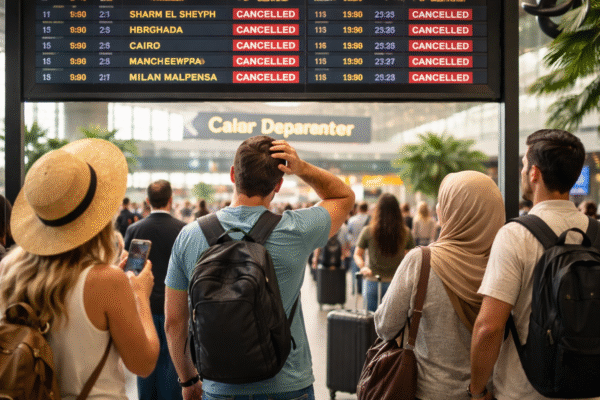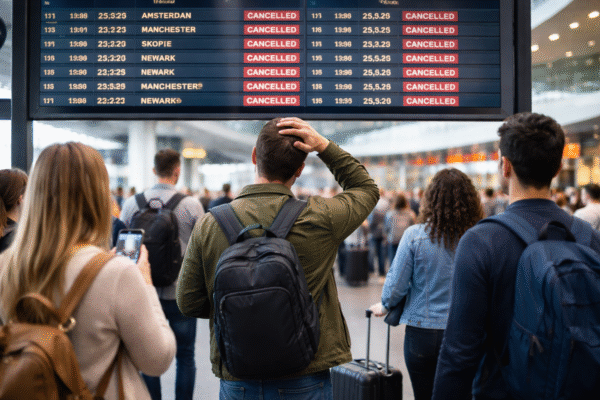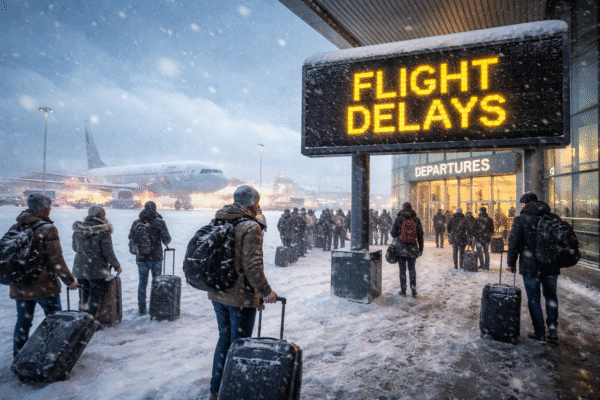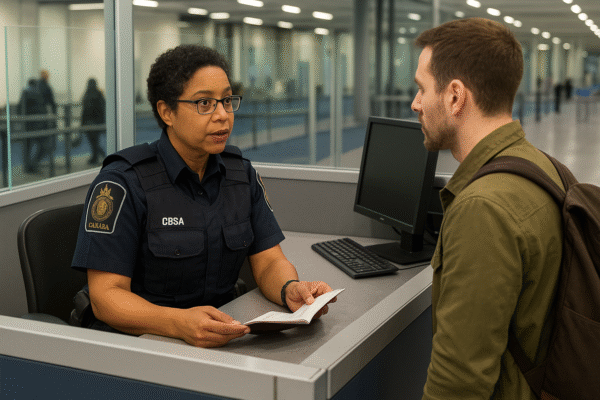Canada Tightens Tourist Screening: New IRCC Rules Bring Tougher Entry Checks and More Questions
OTTAWA – Canada is set to implement sweeping immigration changes over the 2025–2027 period, introducing tougher entry screening for tourists. Immigration, Refugees and Citizenship Canada (IRCC) is preparing amendments that will give border and immigration officers expanded powers to question travellers, even if they already hold valid visas or electronic travel authorizations (eTAs).
Expanded Authority for Officers to Question Visitors
Under the upcoming rules, immigration officers will be able to question visitors more thoroughly at any stage—during the visa application process, at the port of entry, or even while they are in Canada. Tourists may be required to confirm their travel purpose, present updated proof of funds, or explain changes to their original itinerary. The aim is to strengthen border security and prevent misuse of visitor programs.
Greater Risk of Secondary Inspections
Travellers should expect an increase in secondary inspections, where officers take additional time to verify documents and details. This could mean longer wait times at airports and land crossings, especially if there are inconsistencies in travel plans or supporting documents.
Regulatory Basis and Timeline
The planned changes will be introduced through official amendments to the Immigration and Refugee Protection Regulations. Public consultations are expected in late 2025 or early 2026, with the final rules likely taking effect between 2026 and 2027.
New Document Cancellation Powers
In February 2025, new powers were introduced allowing officers to cancel visas, permits, or eTAs if there is evidence of misuse or if the holder no longer meets eligibility criteria. These powers will be expanded further over the next two years to allow swift action against fraudulent or ineligible entries.
Digital Modernization of Visitor Processing
IRCC is also rolling out a Digital Platform Modernization program to streamline visa applications and create a more efficient, single-window service for travellers. The tourist visa program is among the first to be modernized under this plan.
What Tourists Should Know and Do
Be Transparent at All Points
Honesty will be critical. Any form of misrepresentation, even minor, can result in refusal of entry or a ban of up to five years. Travellers should be prepared to clearly explain any changes in their travel purpose or itinerary.
Carry Comprehensive Documentation
Visitors should bring all necessary documents that support their travel plans, such as hotel confirmations, return tickets, proof of financial means, and any other relevant paperwork. These should match the information submitted in the visa or eTA application.
Expect and Prepare for Interviews
Interviews may be required both before and after arrival in Canada. These could be conducted in person or virtually. Tourists should prepare clear, concise answers and ensure punctuality for any scheduled meetings.
Allow Extra Time at Entry Points
Longer processing times are likely as more thorough checks are introduced. Allowing extra time when planning travel will help avoid missed connections or stress at arrival points.
Stay Informed
Since consultations and rule-making are ongoing, requirements could change before final implementation. Travellers should monitor official government announcements to ensure they meet the latest criteria.
Broader Policy Context
Declining Temporary Resident Targets
Canada has set new limits for temporary residents, aiming to reduce their share to about 5% of the total population by the end of 2026. The cap will see the number of new work and study permits drop to 673,650 in 2025, 516,600 in 2026, and 543,600 in 2027.
Sustained Entry Document Cancellation Authority
The ability to revoke travel documents is now a permanent part of Canada’s immigration enforcement toolkit. This move reinforces efforts to maintain program integrity and deter fraudulent applications.
Budgeting for Modern Immigration Tools
The modernization program will enhance digital processing but may introduce additional pre-departure steps for travellers, potentially requiring earlier applications to meet timelines.
Impact on Tourism and Travel
Potential Border Delays
While the new rules aim for more predictable processing, they may initially increase waiting times for some travellers. Tourism operators should advise clients to plan accordingly.
Risk of Travel Disruption
The expanded cancellation powers mean that travellers could face last-minute trip disruptions if they fail to meet updated requirements. Agencies should conduct thorough document checks well before departure.
Higher Compliance Requirements
Expanded biometric use and tighter transit eTA rules will require some visitors to complete new pre-departure steps. This may deter last-minute trips but should improve security and efficiency in the long term.
Shift in Visitor Composition
Stricter study permit rules and reduced post-graduation work permit eligibility will likely decrease visits from friends and relatives of international students. However, certain labour mobility programs could help fill tourism and hospitality roles, indirectly supporting the industry.
How the Tourism Industry Should Respond
Strengthen Pre-Travel Checks
Travel agencies and airlines should ensure clients meet the updated visa and eTA requirements, and are aware of the expanded questioning powers.
Adjust Marketing Strategies
With a potential drop in student-linked tourism, marketing may need to target more leisure travellers from overseas markets where visitor trends remain strong.
Prepare for New Application Timelines
Encouraging travellers to apply early will reduce the risk of delays as the digital transition and expanded checks take effect.
Monitor Tourism Data
Industry stakeholders should keep a close watch on visitor and spending statistics to adapt quickly to changes in travel patterns.
Final Take
Canada’s upcoming immigration changes are designed to protect border integrity without discouraging genuine travellers. Tourists who prepare thoroughly, remain honest, and stay informed should still enjoy smooth access to one of the world’s most popular destinations. For the tourism sector, adapting quickly to these rules will be key to maintaining visitor flows and sustaining economic benefits.
For more travel news like this, keep reading Global Travel Wire















